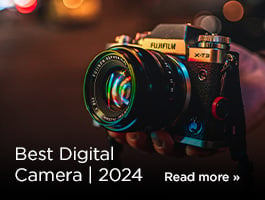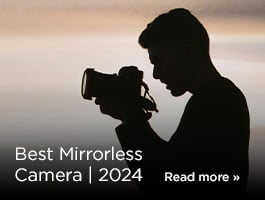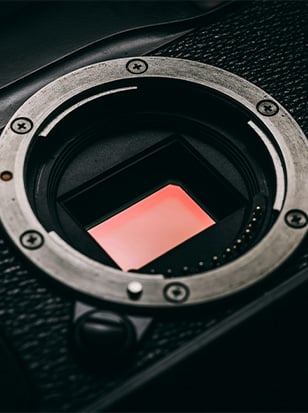
Jon Enoch
- Job title: Commercial Photographer
- Website: jonenoch.com
- Instagram: jonenochphoto
- Related jobs: Product photographer, photography assistant, lighting assistant, editor, retoucher
When he was young, Jon Enoch wouldn’t have dreamed that he’d grow up to photograph famous actors like Martin Freeman or world-class athletes like Usain Bolt. Photography had never crossed his mind growing up, and when he went to university in Sheffield, it was to read geography.
It all happened by chance. After winning a competition in his local record store, the then 19-year-old Jon deferred his studies to embark on an eight-month round the world trip. He brought along a camera to document his adventures, and like so many of us, found himself catching the photography bug. As soon as he got home, he started volunteering on the student newspaper, taking photos of gigs and events.
Nowadays, Jon is a successful photographer and director, working in commercial, advertising and editorial fields. I spoke to him to learn more about how he got from there to here, and what advice he might have for anyone looking to take a similar journey…

JS: What was your first proper role in the photo industry?
JE: At my university, there was a photojournalism course — it was the industry course, with all the regional newspapers. It happened to be at Sheffield College when I was at University of Sheffield.
I enrolled on that course. But then, I got a job on a daily newspaper within a month or two. So I did the job and finished the course remotely. I was a photographer on a daily newspaper, the Lincolnshire Echo. It sounds crazy now… this was roughly 2006, and the newspaper had six staff photographers working full time.
You got given a load of kit. You got a car, and free petrol. It might not have always been the world's most exciting subject matter, but there were opportunities to try stuff out. I think the first thing I did was shoot the Christmas lights being put on the Christmas tree. I was up on a cherry picker.
Some people would turn their nose up at it — but I had an interest in news and I loved it. They used to print the newspaper downstairs, so you’d shoot a job in the morning, edit it, put it in, and then you’d be walking out for lunch and it would be coming off the line. It was very immediate.
JS: Where did things go from there?
JE: I went to a news agency in Nottingham. They serviced the national newspapers; if you were the Guardian or the Telegraph or the Times, and you needed something done north of Watford, you would outsource the job to this agency. We would monitor news in the region, and if anything happened we felt was of national significance, we would jump on it.
I started to work a lot for the Times. They became a regular — phoning me up on my mobile and saying, “Jon, can you work for us today?” I thought it was time to cash my chips in. The picture editor at the time said they’d give me a day a week. I was like, “Perfect! That will be enough to live on in London. One hundred and fifty pounds a week — I'm gonna be rich!” So I moved to London with two names on a piece of paper, and half a promise off a picture editor.
I moved down on a Thursday or Friday and started working the following Monday. In that first month, I must have done thirty jobs. It was one of those things. Right time, right place. I knew I’d had a good day when the picture desk manager at the Times phoned me and said, “I’m testing the line; I’ve put your number on speed dial.”
I started to get opportunities for more considered things, like set-piece interviews with politicians. I started to elevate it and light it. I moved away from being seen as that newsy person. For a couple of years, I was the Times’ go-to person for all the musicians, the actors. I could go into a hotel room, set up while they did the interview, and then give them images that didn't look like they were shot in a hotel room. It was about working quickly — getting something in five minutes, or three minutes, or two minutes. If you can do that, the journalists love you.
You don't faff around. You’ve already set up, already pre-lit. They’ve finished the interview — bang, you go. Maybe you’ve got two setups — you get an A-look and a B-look just by changing one modifier. It looks like you’ve had ages with this person, but then you look at the timestamps on the images and you’ve done it in 45 seconds.
I had great access to amazing people. That was when the portfolio started to ramp up, and I could take images to magazines. If [the subject] was a big name, I would spend my own money — hire in lighting, hire an assistant. Maybe one job in ten, I would look at as a loss leader — ‘We’re going to do an amazing job on this, because it’s too good an opportunity to miss.’

JS: It’s like any business — you invest where it matters.
JE: The Times would pay nothing; they paid about £160 for the shoot. You’d spend three or four times that, but you’d end up with images that allowed you to go to the next step. That’s something I always did — even at the Lincolnshire Echo. You shoot what they want, but you also shoot what you need for your portfolio.
Nobody will give you a chance unless they can see concrete proof you've done it. If an ad agency wants lovely pictures of somebody walking through a hotel, you've got to show them lovely pictures of somebody walking through a hotel.
Now, you might have shot those pictures on an editorial commission. You may have been sent [to the hotel] to do the head chef for a food piece. But whilst you were there, you quickly asked the PR person to walk through the hotel, and then suddenly, you’ve got something that works for the next stage.
JS: That’s interesting. You have to train yourself to always be looking for the next opportunity?
JE: Opportunities and access. You can be the best photographer in the world, you can know everything about lighting, but if you don't have the opportunity or the access, you're restricted.
I think too many people think just about the commission. Always take a picture for yourself. The newspapers love a big group shot, but it’s a rubbish picture; thirty people staring at the camera is never going to be nice. You do it — you do what the client wants — but you also find a few minutes to do something for yourself; maybe taking one person and doing a portrait by a window.
You've got to shoot for yourself as well as the client, otherwise you'll always be stuck on that first rung.

JS: And that dovetails with what you were saying about being able to do things quickly. All these skills feed into each other.
JE: Speed is a really important thing about what we do. No matter what level you're at: time isn’t a commodity that's in ample supply. I promise you, nobody is ever going to say, “Oh, we’ve got eight hours.”
Sometimes you’ve got an hour, then somebody pokes their head around the door and says, “You haven’t got an hour; you’ve got 10 minutes.” Being able to adapt and still deliver at that level, that's crucial. There's always things that go wrong, the talent is always late. It’s about being unflappable. And that also provides value for the client; if you can problem-solve quickly, and you can do in 10 minutes what might take somebody else 50 minutes.
JS: Looking back across your career, are there particular moments that stand out as things you are especially proud of, or that you regard as particularly significant?
JE: Taking risks, and not being comfortable. I could easily have stayed at that newspaper in Lincoln. I loved it. There were loads of people exactly my age, in the same boat, and we were having a great time. But I left to go and work in a town where I knew no-one.
Sometimes people rush it. They leave university and are instantly like, “I want to move to London!” That wouldn’t have worked for me either; I was a country boy from Dorset. I needed a bit of life experience. You’ve got to find your path; it's not always about moving quickly. It's about moving at the right speed for you.
To answer your question, for me it was doing it at the right time, and being prepared to take that risk. Now looking back, that risk was mental! I left a paid staff job to move to London, for a bloke on the phone who'd said he might give me a day a week.
JS: It's always going to be a risk, isn't it? I guess you might say a calculated risk is what you need to be able to take
JE: And taking that risk young enough, when you still feel invincible. Finding that sweet spot of where you're able to do it, and naive enough to do it.

JS: Something that strikes me from having listened to you is that a lot of the skills you’ve talked about as being helpful haven’t been photographic. Obviously, you need to be able to take pictures. But a lot of people can take pictures. So it seems that if you can do a lot of the stuff around the edges — the words people don't like to hear, like networking — that’s going to set you apart.
JE: The market is too competitive to rely on photographic ability alone. There are too many photographers with amazing Instagram accounts that are just sitting there. If you're expecting that your talent alone will make it happen, then I hope you're really talented.
Nobody owes you anything. They're not going to come and find you. You've got to go out and make it happen. I'm not too good for anything; if someone wants to put money on the table, I'll do it. There's always something positive to take from a job, however small it might be. It might be a boring job photographically, but that's only one part of the equation.
Maybe you're not the most confident person; maybe you're not a great public speaker; maybe you're not comfortable in a big city environment. You can work on those things, in the same way you would work on your lighting or your Photoshop ability. You've got to put the time in and invest in yourself.
A final piece of advice — something I do is shoot personal projects. It means that you're in charge of where you’re going. Your commissions might be taking you one way, but if you've got another idea, you can use that personal work to steer things in the direction you want.
Every six months to a year, I'll come up with an idea and I'll go and shoot it. On my website, it tends to be the interesting stuff — The Candy Men, The Bikes of Hanoi. People love it, but nobody’s going to commission it.
You can make things happen. It doesn’t need to be as far-flung as these projects — something in your town or on your street could lend itself. It’s about investing back in yourself, as opposed to letting chance and opportunity wash over you.

About the Author
Jon Stapley is a London-based freelance writer and journalist who covers photography, art and technology. When not writing about cameras, Jon is a keen photographer who captures the world using his Olympus XA2. His creativity extends to works of fiction and other creative writing, all of which can be found on his website www.jonstapley.com
Sign up for our newsletter today!
- Subscribe for exclusive discounts and special offers
- Receive our monthly content roundups
- Get the latest news and know-how from our experts







